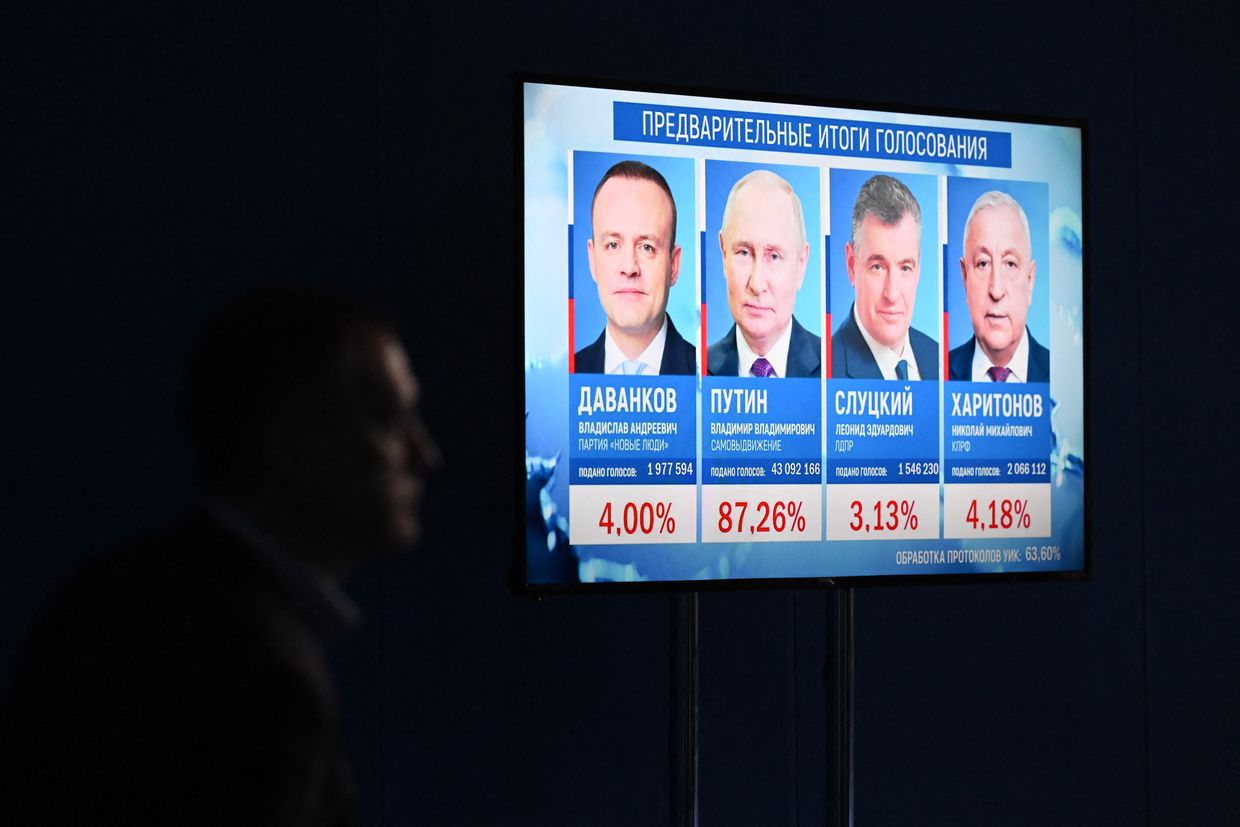Putin inaugurated for 5th term in office in ceremony largely boycotted by West

Editor's note: The article was updated with comments from Peter Stano, an EU foreign and security policy spokesperson.
Russian President Vladimir Putin was sworn in on May 7 to his fifth term in office in an elaborate ceremony that most Western countries refused to participate in.
Putin easily won another six-year term in office in an election in March that is widely viewed as being rigged.
Many European countries, such as the U.K., Germany, Estonia, Czechia, as well as the U.S., said they would boycott the inauguration ceremony.
The inauguration was attended by representatives from six EU countries: France, Hungary, Slovakia, Greece, Malta, and Cyprus.
Josep Borrell, the EU's top diplomat, said that he sent a message to EU member states that "the right thing to do is not to attend this inauguration."
The EU's ambassador was also instructed not to attend the event, said Peter Stano, an EU foreign and security policy spokesperson.
"The recommendation was for member states to avoid this event. Nevertheless, few member states decided to proceed on their own," Stano said, stressing that the majority of EU countries boycotted the event.
"In the end, it's their own competence and decision to decide whether they want to attend... these are the decisions they take based on their competence, based on their national sovereignty, because, in the end, this is about bilateral relations."
In a sign of Russia's declining influence in its near abroad, Armenian Prime Minister Nikol Pashinyan declined to join.
A smattering of foreign guests participated, but foreign leaders were largely absent.

"We are a united and great people, and together we will overcome all obstacles, we will bring to life everything we have planned," Putin said in his inauguration speech.
"Together we will be victorious."
Putin added that he would not "refuse to have dialogue" with the West.
"The choice is (the West's): do they intend to continue trying to restrain the development of Russia, continue the policy of aggression, continuous pressure on our country for years, or look for a path to cooperation and peace," Putin said.
Besides a brief mention of his appreciation for soldiers fighting in the "special military operation," the Russian euphemism used to obfuscate the true nature of its full-scale war, Putin did not mention Ukraine in his speech.

U.S. State Department spokesperson Matthew Miller said that while there would be no American representative at the ceremony, the U.S. would recognize Putin as the president of Russia.
Ukraine's Foreign Ministry urged other countries and international organizations not to recognize Putin as the rightful president.
There are "no legal grounds for recognizing Putin as the democratically elected and legitimate president of Russia," the ministry said.
The European Parliament overwhelmingly adopted a resolution in April condemning Putin's election as being illegitimate.













